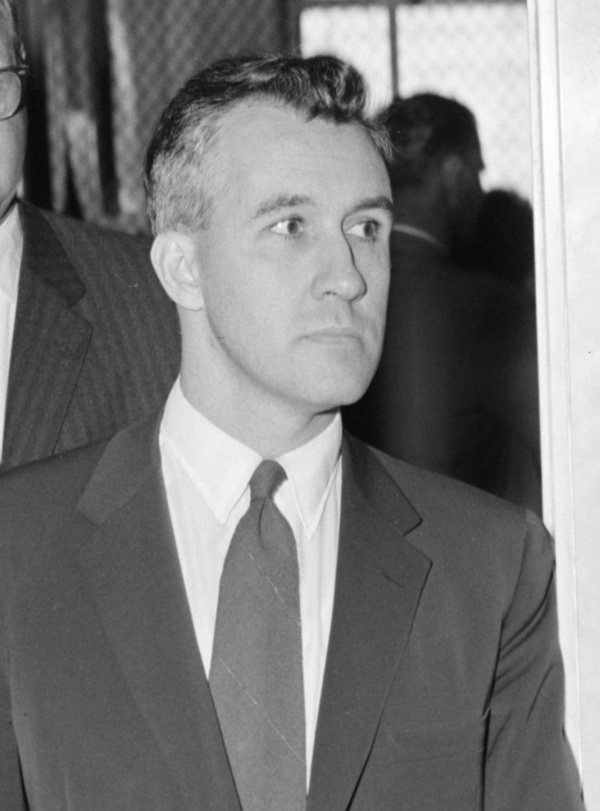The Proclamation of London - Francis Parker Yockey
Francis Parker Yockey, The Proclamation of London (1949).
During the dynastic period of Western history, although intra-European wars were of large-scale and long duration, they were limited into their aim, and the exploitation of victory was strictly conditioned. They were not national wars, but dynastic wars. Power was the stake, but only power within the prevailing forms of chivalrous ethics, comity, and Cultural unity. This unity was known as the Concert of Europe, and the very name itself reflects the deep sense of unity throughout the European family.
With the coming of the Age of Materialism, and the assault on all the traditions of the West by the forces of liberalism, Jacobinism, democracy, money, and rationalism, the dynastic concept of the Nation-idea slowly broke down and was replaced by the linguistic concept of the nation. The mystical-authoritative symbol of the ruling house had been the ultimate expression of the Nation-Idea for centuries, but now a new age demanded a new form of the nation-concept to reflect the materialistic outlook of the 19th century. Materialism thus created the linguistic test of nationality.
The increasing expansive tendency of the Western organism had resulted in a vast increase of the Western population, the reflection of its more extensive life-task. From this arose huge economic systems, stronger States than any that had previously existed, larger-scale wars, and constant increase of the power-content of the struggle.
The literary concept of the Nation-Idea, isolated the nations from one another, and accentuated their national feelings vis-à-vis one another. Out of this arose the distorted patriotism called chauvinism, or jingoism. It invaded the universities, the world of letters, the cabinets, and the political parties. It concentrated all of its hopes, feelings, ideals, and understanding onto the nations, and in its last stage, it finally attained to the ridiculous idea that nations are the creators of culture, that, thus, there were as many Cultures in Europe as there were nations. Since it had been the feeling of Culture unity which had bound Europe together, and had kept its internal politics and wars limited and chivalrous, this insane form of nationalism was striking at the very basis of the unity of Europe. If, in a war between two European States, each one regarded itself as a Culture, then the opponent was a total enemy, and the struggle was an absolute one. This new concept of war and politics governed the minds of the materialistic democrats and liberals, who now welcomed the jingoist into their republic of destruction. The jingoists reinterpreted the entire Past in terms of the 19th century nations. They spoke of these, nations as though they had always existed, and were mechanically and causally necessary to the existence of the world, as if they were the sole units of higher history, and as if the future, as well the past, belonged to these historical building blocks.
But once more, the materialistic assault was not entirely successful. Tradition did not break down completely, because it is the very core, the wrapping of the soul of the Western Culture. Thus, after the Franco-Prussian War, late in the 19th century, Bismarck saw to the safety and honourable treatment of the defeated French Emperor, and the treaty of peace was in the 18th century chivalrous style. The vertical nationalism of materialistic jingoism did not succeed in destroying entirely the feeling of Cultural unity, and the proof is in the Western reaction to the Chinese Boxer Rebellion in 1900. As one, the European nations joined, together with the American colony in sending a joint expeditionary force to represent and protect Europe as a unit, under the command of the German Field-Marshal Waldersee.
The struggle between Tradition and vertical nationalism continued and finally reached its highest intensity with the caesura of the First World War. But suddenly, with the end of that war, there was a new world in existence. Europe, in that powerful tremor, had entered upon a new phase of its existence. The break was just as profound as that of the Revolution of 1789, the other great turning-point in recent European history. The old notions of materialism nations, society, history, Politics, State, war, culture, education, ethics, science, were all swept away. In their place was a new, complete, organic view of life. Its relation to the old materialist-rationalist-democratic-communist view is most easily understood, not as true to false, but as the Future to the Past. The old materialistic, disintegratory, atomistic, liberal-parliamentary view of the world had simply died a natural death. This is the only way historical Ideas can be overcome, the organic way, by complete fulfillment and death. The First World War itself was a creation -- the last independent creation -- of that old outlook; it was the highest expression of vertical nationalism and the age of materialism.
